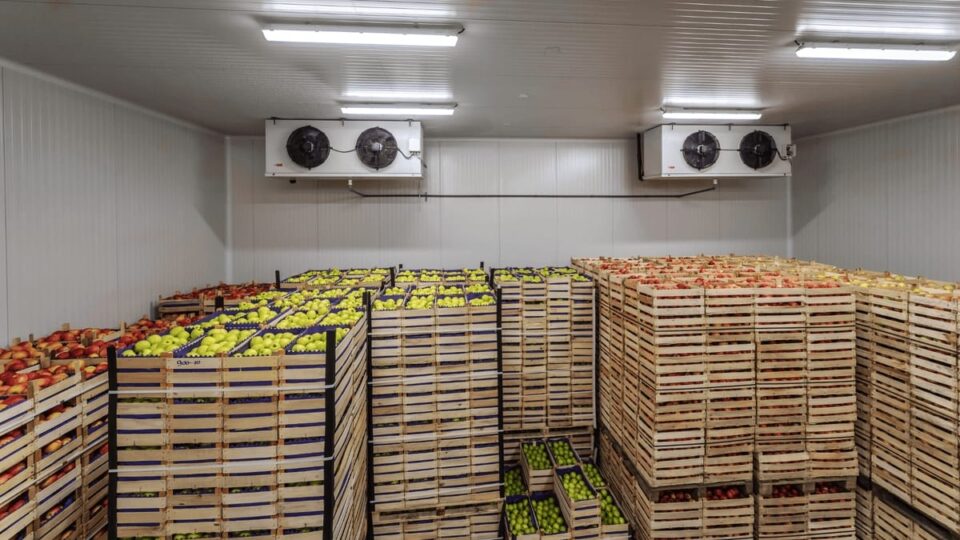Mechanical ventilation systems are essential in managing air quality within various environments, particularly in commercial and industrial settings in Australia. This blog post explores the significance of mechanical ventilation, delving into when and where it’s required, the regulations governing its use, and how Fanquip leads in providing innovative industrial ventilation solutions.
When is Mechanical Ventilation Required?
Mechanical ventilation becomes necessary when natural methods, such as open doors and windows, are insufficient to maintain air quality. This could be due to the building design, external pollution levels, or specific activities carried out within the space. Mechanical systems are designed to introduce fresh air, control indoor air quality by removing contaminants like carbon dioxide and pollutants, and ensure a comfortable and safe environment.
What are the Ventilation Requirements in Australia?
The ventilation requirements in Australia are detailed primarily under the Australian Standard AS 1668.2 – Mechanical Ventilation for Buildings, and various stipulations within the National Construction Code (NCC). These standards and codes are designed to ensure the safety, comfort, and health of building occupants by regulating indoor air quality and environmental conditions.
Australian Standard AS 1668.2
The Australian Standard AS 1668.2 – Mechanical Ventilation for Buildings specifies the minimum requirements for the mechanical ventilation of buildings. It is part of ensuring that the concentration of air pollutants, odours, and humidity are kept within safe limits to avoid health risks.
National Construction Code (NCC) 2019
The NCC integrates AS 1668.2 and provides additional guidelines, including:
- Minimum outdoor air requirements: The NCC outlines the minimum amount of outdoor air that needs to be introduced based on the building’s use, occupancy levels, and floor area to ensure adequate ventilation.
- Energy efficiency measures: For buildings with significant outdoor airflow, the NCC mandates the use of energy reclaiming systems, particularly in specific climate zones. These systems, such as heat recovery ventilators, are efficient in managing energy usage while providing necessary ventilation.
- Modulating controls: In certain climate zones, buildings are required to have modulating controls to adjust the ventilation rates based on the detected air quality levels, such as CO2 concentrations.
In What Industries is Mechanical Ventilation Required?
In addition to these general requirements, specific industries have their own set of ventilation guidelines to address particular hazards associated with their operations:
- Manufacturing and Industrial Workplaces: These spaces must have adequate ventilation to prevent the accumulation of harmful dust, fumes, and gases.
- Mining and Heavy Industry: Ventilation systems in these industries are crucial for controlling the concentration of hazardous airborne particles and gases.
- Food Processing: Ventilation helps control humidity, temperature, and airborne contaminants to ensure food safety and worker health.
- Healthcare Facilities: Ensuring a sterile environment to prevent the spread of infections and diseases through effective ventilation is a critical requirement.

Ventilation Maintenance & Inspection
Regular maintenance and inspection of ventilation systems are mandated to ensure they continue to perform effectively and safely. This involves routine checks and servicing by qualified HVAC technicians as per the manufacturer’s recommendations or as advised by a competent professional.
When is Mechanical Ventilation Not Required?
In some cases, such as well-designed spaces with good natural airflow and low occupancy or pollution levels, mechanical ventilation may not be necessary. Natural ventilation can suffice to maintain air quality and comfort in such scenarios.
Fanquip Industrial Ventilation Solutions
At Fanquip, we offer a wide array of ventilation solutions tailored to the unique needs of various industries. Our products range from exhaust systems to sophisticated air handling systems that ensure efficient heat recovery and air quality control. With over 39 years of experience, Fanquip’s solutions prioritise sustainability, efficiency, and compliance with the Australian standards.
Specific Solutions Across Industries
Agriculture
Fanquip’s agricultural exhaust fans and air circulators help manage air quality in farming environments, mitigating risks associated with animal waste, pesticides, and other contaminants.
Building & Construction
Our custom ventilation solutions support the construction industry by ensuring dust control and air quality at construction sites, enhancing worker safety and compliance.
Food Processing & Production
We enhance air quality in food processing areas, crucial for preventing contamination and ensuring a healthy environment for food handling.

Manufacturing
Addressing air quality in manufacturing facilities is vital for preventing occupational diseases and ensuring a safe working environment. Fanquip’s solutions cater to the specific needs of this sector, focusing on dust and fume extraction.
Mining & Metals
In the challenging environments of mining and metals processing, our robust ventilation solutions control particulate matter and ensure compliance with safety standards.
Retail
Our mechanical ventilation solutions are designed to meet the high standards required in commercial retail settings, ensuring customer and staff comfort and safety.
Oil & Gas
Fanquip’s industrial solutions tailored for the Oil and Gas sector are Australian-manufactured and designed to thrive in the most challenging environments. Our products are built to be resilient and dependable, capable of withstanding high temperatures with ease.
Get Expert Advice for Industrial Ventilation Solutions
Choosing the right ventilation solution requires careful consideration of many factors, including air flow requirements, space usage, and specific industry regulations. Fanquip’s experts are adept at assessing these needs and providing bespoke solutions that align with both health standards and operational goals.
Effective ventilation is not just about compliance; it’s about creating healthier and more productive environments. Whether you need an exhaust fan for a small workshop or a comprehensive ventilation system for a large industrial facility, Fanquip has the expertise and products to meet your needs.
Consult with Fanquip to ensure that your ventilation systems and products are not only compliant but also optimised for your specific industrial needs.
